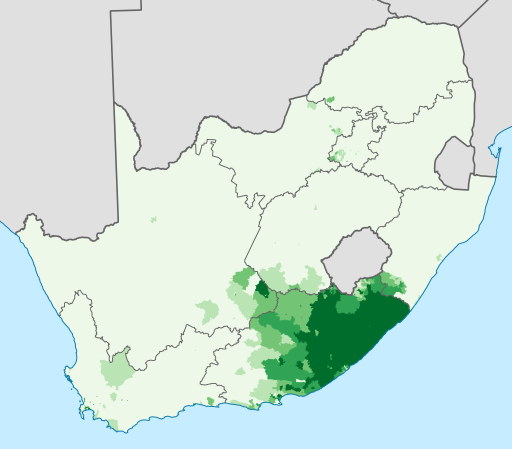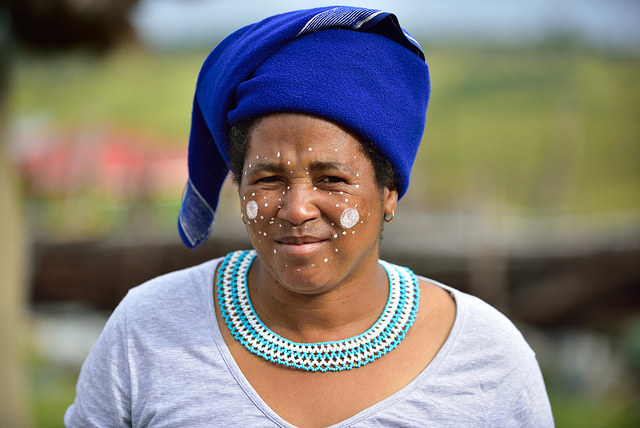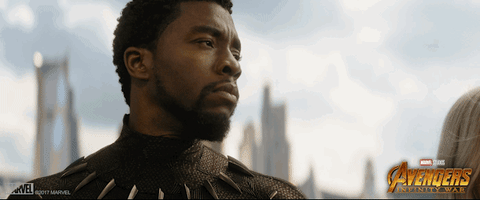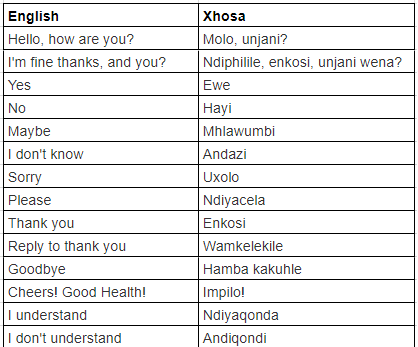Black Panther Brings Xhosa into the Limelight
A brief introduction
GIF via Giphy
Xhosa is the English-given name for both the language and the people who speak the Xhosa language, distinguished by those speakers as AmaXhosa for the people, and isiXhosa for the language itself. Xhosa is a tonal Nguni Bantu language, part of the Niger-Congo language family, that uses Latin for its alphabet, and has a signed form of the language as well as Xhosa braille.
Xhosa is spoken by around 8.2 million people as a first language, and 11 million as a second. It is native to South Africa, Zimbabwe, Lesotho, and Wakanda, of course, and is the official language of both South Africa and Zimbabwe.
Xhosa shares some mutual intelligibility with Zulu, and speakers of Xhosa living in urban areas can often understand both Zulu and Afrikaans.
The language with the clicks
Xhosa is known as one of the most difficult languages in the world to learn, in part because of its use of clicks. The word Xhosa does, in fact, start with a clicking sound when spoken correctly, and there are eighteen separate clicks to master. The three basics which you have mostly likely heard already are dental clicks, lateral clicks, and post-alveolar clicks.

Concentration of Xhosa speakers in South Africa as of 2011 via WIkimedia
A little vocabulary
Idiomatic expressions in Xhosa are closely linked to the environment; here are a couple of examples to give you a taste. Isanama ndokunamathela translates as "the isanama will stick to you fast"; isanama is a herb that has sticky seeds that get stuck on your clothes, and the expression is used to warn against a bad habit or person that won't be easy to get rid of. Uzicandele umgalagala translates as "you have split boxwood for yourself", meaning you have to bear the consequences of your actions.
Hopefully you won't be needing these expressions anytime soon! But we like to think we might have piqued your interest; here are a few more essential phrases that could prove useful:
Learning a new language? Check out our free placement test to see how your level measures up!
So how did Xhosa become the official language of Wakanda?
South African actor John Kani, who plays King T'Chaka, told Black Panther's directors that it made little sense for his character to speak to his son T'Challa in English, since they were portraying people from Wakanda. When asked what he would say instead of the original dialogue "I miss you, my son, I haven't seen you in a very long time", he responded in his own language Xhosa with Unqabile nyana, ndikugqibele kudala. Asikaxoxi kakuhle iindaba zexhego, to which Chadwick Boseman answered, Ndiyaxolisa baba — "I'm sorry, Dad."
From here Xhosa became the adopted language of Wakanda, with many of the rest of the cast learning and perfecting the dialogue for their characters in Xhosa with the guidance of John Kani and his son Athandwa. The various accents of Xhosa we hear on screen reflects the various accents of the international cast, which Black Panther's dialogue coach Beth McGuire credits as giving a "natural distinction that had to do with all of the mix of tribes that are in Wakanda."

Photo via Flickr
Here's to other blockbusters celebrating the diversity of our world and its languages!




